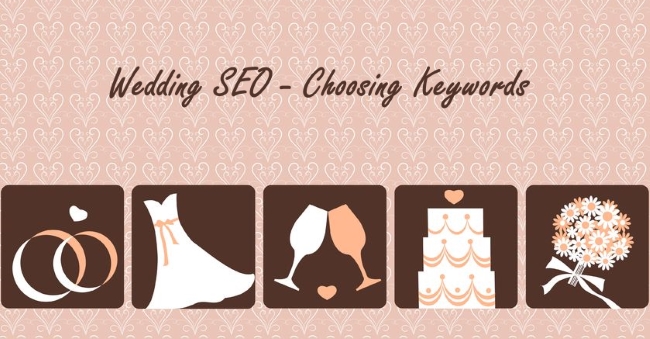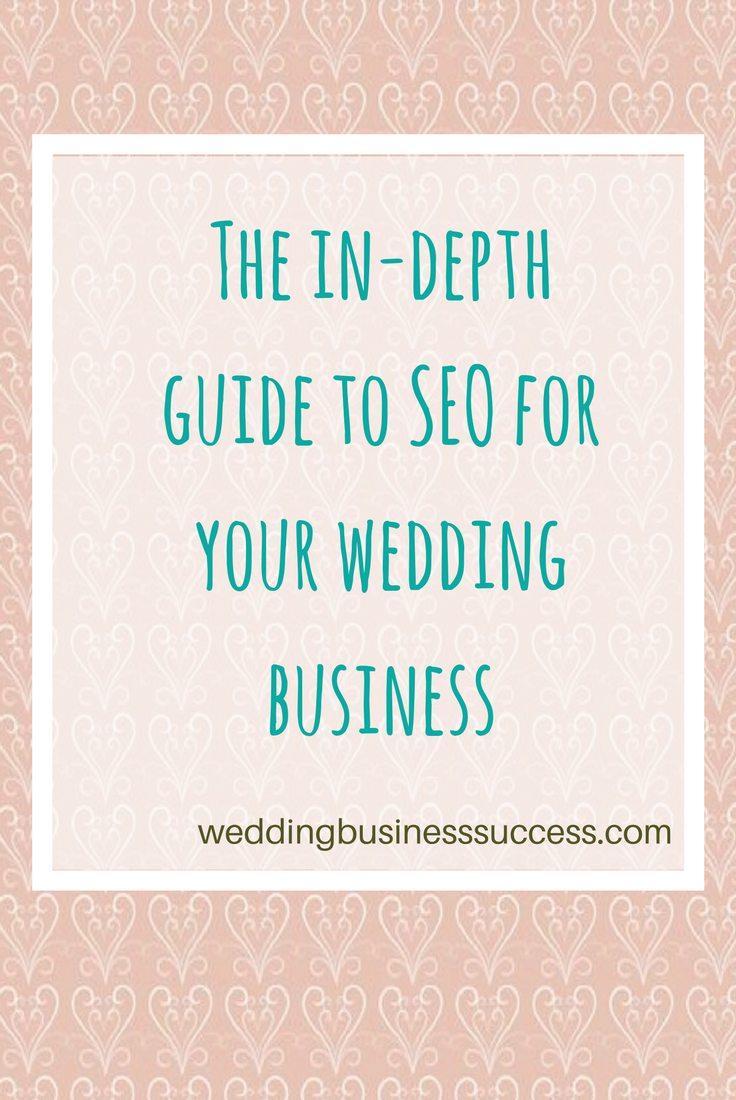Are you ready to get more business from search engines?
In an earlier article we took a high level look at getting your wedding business found on Google and search optimisation (or SEO).
In this multi-part series, we’re going to take you through the steps of how to improve your search ranking, starting with choosing the right keywords.
Search optimisation takes time and effort – and it’s not a quick fix solution. But neither is it the rocket science that some “gurus” would have you believe. And the results can be very rewarding – a steady stream of relevant enquiries for your business.
You don’t need to be a technical genius – just follow our jargon-free articles and start getting found on Google.
Ready? Let’s go!
What do your customers search for?
Think about the words and phrases people will use to look for your product or service. Write them all down (an excel spreadsheet is really good for this).
You will generally have:
- Core words or phrases that describe your basic product/service, e.g. wedding cakes
- Descriptive words, e.g. chocolate, gluten-free, cheap, luxury
- Locations e.g Oxford, Devon,
There will be variations and alternative ways of phrasing things – “Wedding photography”, “Wedding photographer”, “Photographer for wedding” for example – get them all down on your list.
Which are most popular?
Google has a handy keyword planning tool which you can use to determine which phrases are most popular. You’ll need to create a Google Adwords account to use it – but you don’t actually need to run any adverts.
You can also use this to give you different ideas and possibly things you haven’t thought of.
You’ll probably need to leave out locations when using the tool – the volumes will just be too low. But it can give you a useful indicator as to whether “wedding photographer” or “wedding photography” is more popular.
What’s the competition like?
Before you make a decision on the best keywords for your business, it’s worth checking out the competition.
Do some searches and see what comes up on page 1 of Google.
If you see lots of well established brands there – like Amazon, Martha Stewart, big wedding blogs – then it’s going to be hard for your small business to get onto page one. The same applies if there is a lot of competition across a wide geographical area.
If you’re a brand new business then it’s going to take a lot of time and investment to get to page one for a broad phrase like “Wedding Cake UK”.
Try phrases which are a little more specific by adding locations and/or words which reflect the specific type of customer you are targeting:
“Wedding Cakes Oxford” or “Gluten-free wedding cakes Yorkshire”
Watch out for personalised search results
Google search results are highly personalised – this means that what you see is not the same as anyone else.
So before you try the above exercise, make sure you are logged out of any Google accounts. Even then, Google will try to personalise your results. For example, I just typed in “wedding photographer” and most of the first page results were Manchester based photographers – where I live.
And if you want to check where your own website currently ranks, then you must do a “de-personalised” search. There are various ways to do this – check out this article for some options.
Many businesses are fooled into thinking they rank better than they actually do – because Google will give a boost to sites you visit often.
Which keywords are the best ones for you?
Choosing the best keywords for your business is usually a compromise between the high volume phrases and the ones where you have a reasonable chance of getting onto the first page of Google.
Remember that hardly anyone goes much beyond the first page – to get a reasonable number of enquiries you need to be on page one for relevant search terms that are actually used by your target customers.
Go through your list and choose the top words and phrases you want to target.
Don’t discard the rest – you can use them later (when writing blog articles, for example).
Using your keywords
Great. Now you’re ready to start optimising your website.
Watch out for Part 2, coming soon, when we’ll look at how to use your keywords and explain how and where to put them on your website so that Google rates your pages when relevant searches are made.
PS: If you’d rather leave it all to the experts, then check out our very affordable SEO package especially for wedding businesses


